This drawing shows where trans-neptunian objects are found.
Click on image for full size
How many planets orbit the sun?
I was wondering if there is a new planet? Are there planets (a tenth planet?) after Pluto belonging to our solar system? What are the names of the new planets discovered in the solar system? Are there any objects that orbit the sun that are not in the same plane as the planets, excluding Pluto, comets, asteroids? Do we know any names to any other planets than those in our solar system? If yes, could you give me any examples?
Only 9 planets orbit the Sun. People have been finding other objects in the solar system, but none of them are planets. And none of them are the mysterious Planet X!
These objects are called trans-neptunian objects (TNOs). Trans-neptunian means that they are farther out than Neptune. The first TNO to be discovered (beside Pluto!) was discovered in 1992. Since then, over 300 of these objects have been found!
One of the most recent discoveries of a TNO was in October of 2000. Astronomers found a huge TNO and called it 2000 EB 173. What would you name a new TNO if you found it?
So, no new planets have been discovered in our solar system, but there have been many discoveries of planets outside our solar system. One example are the three planets found around the star Upsilon Andromedae.
Submitted by Jana (New Jersey, USA), Sean (Ohio, USA), John (Ohio, USA), Saravanan (India), Puneet (India), Cassie (Colorado, USA), Jason
(January 26, 2001)
You might also be interested in:
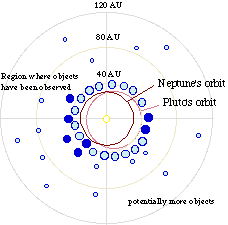
Beyond the orbit of Pluto is a region which contains objects which look like planetismals. The objects are very small, and not very bright. It takes hundreds of years for these objects to go around the
...more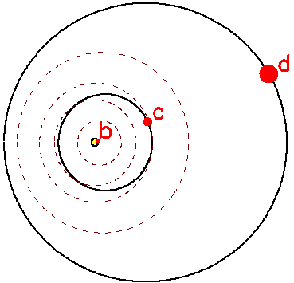
Scientists have recently made the exciting discovery that three planets are orbiting the same star. This is the first system ever which has many planets like our own. If you discovered a new planet what
...more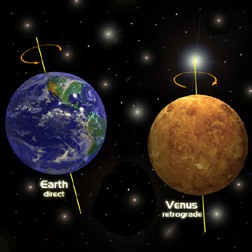
It depends on which type of motion you are asking about. If you take a birds-eye view from the top of the solar system all the planets orbit around the Sun in a counter-clockwise (or direct) direction.
...more
Have you ever wondered how astronauts live in space? Did you know they do a lot of the same things we do here on Earth? Astronauts eat, exercise and sleep just like we do. However, their food isn't always
...more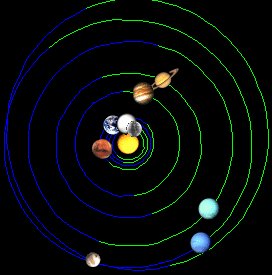
There is a really neat internet program called Solar System Live that shows where all of the planets and the Sun are. If you go to that page, you'll see an image similar to the one on the left. Below the
...more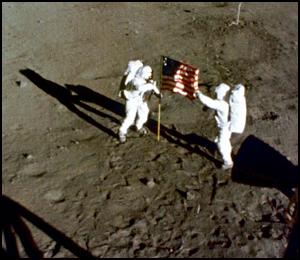
The picture of the American Flag (the one put there by the Apollo astronauts) is waving (or straight out) in the wind. How could that be possible if there is no atmosphere on the Moon? Was it some sort
...more
I was wondering if there is a new planet? Are there planets (a tenth planet?) after Pluto belonging to our solar system? What are the names of the new planets discovered in the solar system? Are there
...more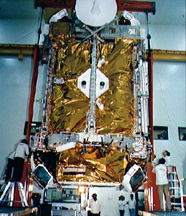
When an object has a really high energy, it can form a black hole. This is called a primordial black hole. Primordial black holes were formed near the beginning of the universe. Primordial black holes
...more













